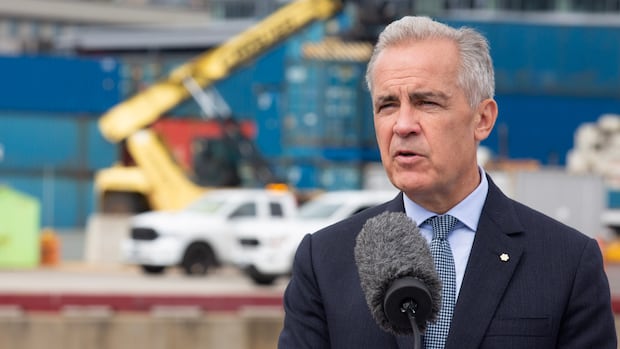Prime Minister Mark Carney and his environment minister have refrained from confirming Canada’s commitment to achieving its climate targets set under the Paris agreement by 2030. The government is facing scrutiny over its emissions reduction strategies.
Environment Minister Julie Dabrusin’s office expressed Canada’s dedication to attaining net-zero emissions by 2050 but did not explicitly endorse the 2030 target when directly questioned. The press secretary, Keean Nembhard, stated that the federal government would provide an update on its emissions reduction plan considering the evolving global and economic circumstances as they work towards the 2030 and 2035 targets.
It is essential to note that Canada has a legislative obligation to reach net-zero emissions by 2050, as outlined in legislation established in 2021. A crucial component of this objective involves reducing emissions to at least 40% below 2005 levels by 2030, a commitment aligned with the Paris Agreement.
This marks the third instance on Monday where a member of Carney’s administration declined to confirm the adherence to the Paris target. Industry Minister Mélanie Joly, earlier in the day, also avoided affirming the government’s commitment to the 2030 target, emphasizing the aim to achieve net-zero emissions by 2050.
During a press event in St. John’s on Monday regarding tariff relief measures for Atlantic Canada businesses, Carney was pressed by reporters about adjusting climate targets following recent policy adjustments that scaled back some of the previous government’s climate initiatives. Carney’s initial actions included eliminating the consumer carbon price and postponing the electric vehicle sales mandate by at least a year, with plans to bolster the industrial carbon pricing system in the future.
When questioned about Canada’s climate targets, Carney pivoted towards highlighting the competitive advantages of a low-carbon economy, mentioning the importance of reducing emissions to enhance competitiveness across industries. Carney emphasized the government’s commitment to driving down emissions in a manner that boosts the country’s competitiveness.
Despite ongoing discussions and policy changes, the government’s stance on meeting the 2030 target remains uncertain, prompting concerns from observers and environmental advocates about the nation’s climate goals. Green Party Leader Elizabeth May criticized Carney’s decisions, suggesting that the rollback of climate actions, including scrapping the carbon price and canceling the EV mandate, indicates a lack of seriousness towards addressing the climate emergency.



